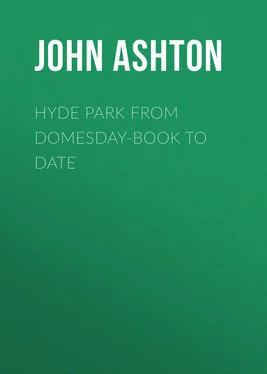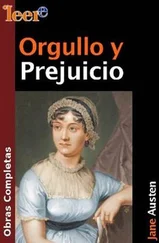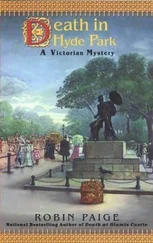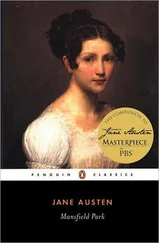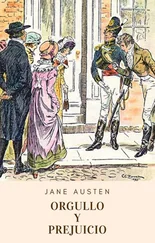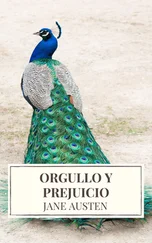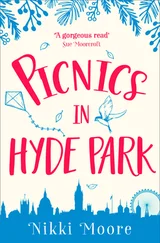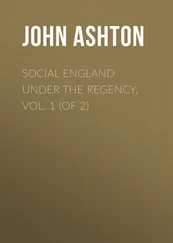John Ashton - Hyde Park from Domesday-book to Date
Здесь есть возможность читать онлайн «John Ashton - Hyde Park from Domesday-book to Date» — ознакомительный отрывок электронной книги совершенно бесплатно, а после прочтения отрывка купить полную версию. В некоторых случаях можно слушать аудио, скачать через торрент в формате fb2 и присутствует краткое содержание. Жанр: foreign_antique, foreign_prose, на английском языке. Описание произведения, (предисловие) а так же отзывы посетителей доступны на портале библиотеки ЛибКат.
- Название:Hyde Park from Domesday-book to Date
- Автор:
- Жанр:
- Год:неизвестен
- ISBN:нет данных
- Рейтинг книги:3 / 5. Голосов: 1
-
Избранное:Добавить в избранное
- Отзывы:
-
Ваша оценка:
- 60
- 1
- 2
- 3
- 4
- 5
Hyde Park from Domesday-book to Date: краткое содержание, описание и аннотация
Предлагаем к чтению аннотацию, описание, краткое содержание или предисловие (зависит от того, что написал сам автор книги «Hyde Park from Domesday-book to Date»). Если вы не нашли необходимую информацию о книге — напишите в комментариях, мы постараемся отыскать её.
Hyde Park from Domesday-book to Date — читать онлайн ознакомительный отрывок
Ниже представлен текст книги, разбитый по страницам. Система сохранения места последней прочитанной страницы, позволяет с удобством читать онлайн бесплатно книгу «Hyde Park from Domesday-book to Date», без необходимости каждый раз заново искать на чём Вы остановились. Поставьте закладку, и сможете в любой момент перейти на страницу, на которой закончили чтение.
Интервал:
Закладка:
“These preliminaries being adjusted, they repaired to Hyde Park, and the seconds having marked out the ground, Mr. B – y had already fired at his antagonist, when his wife, who had received intimation of the affair, flew upon the wings of love, (that is, in a hackney coach,) to the field of battle; and, arriving at this critical time, threw herself upon her knees; and, whilst she looked very languishing, ( but whether at her lover, or her husband, is not certain ) cried out ‘ Oh! spare him! spare him! ’ which entreaty, it is imagined, induced Mr. G – k to fire his pistol in the air, and a reconciliation took place.
“Mr. Davis, our wooden engraver, passing by at the time, was a spectator of the whole transaction, which enabled him to give our readers so lively and picturesque a representation as that annexed, of this curious and uncommon scene; from which there can, no doubt, remain, but that they were both left-handed upon this occasion.”
“Oct. 15, 1771. About eight o’clock in the morning, a duel was fought in Hyde Park, between Major B. and T., a gentleman of great fortune in Yorkshire; when, after discharging a pistol each, the latter received a wound in the side, and was immediately carried in a coach to the house of a surgeon near Piccadilly. It is said the dispute arose from Mr. T. having, a few days since, insulted Major B. for shooting upon part of his estate, without being authorized to do so.”
Here is a duel caused by what was afterwards called “The War of American Independence,” which, however, at the time of its occurrence, had not commenced, although it was imminent.
“Dec. 11, 1773. A duel was fought in Hyde
Park between Mr. Whateley, banker in Lombard Street, brother to Mr. Whateley, late Secretary to the Treasury, and John Temple Esq re, Lieutenant-Governor of New Hampshire, when the former was dangerously wounded. The cause of the quarrel was the discovery of the confidential letters written by Messrs. Hutchinson, Oliver, Paxton, etc., which were lately laid before the assembly at Boston, and have since been published in most of the London papers.”
The next I record has one name well known to literature as a principal, that of “Fighting Parson Bate,” otherwise the Reverend Henry Bate – afterwards Sir Henry Bate Dudley – who is mainly remembered as having founded two newspapers of note, namely the Morning Post and the Morning Herald . “Sep. 14, 1780. A duel was fought in Hyde Park between the Rev. Mr. Bate and Mr. R., 27 27 Richardson.
one of the proprietors of the Morning Post , occasioned by some reflections cast by the former on the whole body of the proprietors, which was resented by the latter. Mr. Bate fired first, and wounded his antagonist in the muscular part of his arm, the other without effect; and then the seconds interposed, and the matter was accommodated.”
One of the most vindictive duels I have read of is that which took place on October 1st, 1797. The principals were Colonel King, afterwards Lord Lorton, and a Colonel Fitzgerald, who, although a married man, had eloped with Colonel King’s sister. The following is the account given by the gentleman who acted as second to both parties.
“Agreeable to an arranged plan I accompanied Colonel King to a spot near the Magazine in the Park. Colonel Fitzgerald we met at Grosvenor Gate, unaccompanied by a friend, which, by the way, he told me yesterday, he feared he should not be able to provide, in consequence of the odium which was thrown upon his character; at the same time observing ‘that he was so sensible of my honour, that he was perfectly satisfied to meet Colonel King unattended by a friend.’ I decidedly refused any interference on his part, informing him ‘that had not nearer relations of the – been on the spot, he would have seen me as a principal.’ He replied, ‘he would try to procure a friend;’ and withdrew. I addressed him this morning by ‘where is your friend, Sir?’ Answer (as well as I recollect), ‘I have not been able to procure one: I rest assured that you will act fairly.’ – I then desired him to apply to his surgeon; which he immediately did, who refused appearing as a second, but said he would be within view. Colonel K. was equally desirous to go on with the business. – I consented. However, I prevailed upon a surgeon, who accompanied Dr. Browne, to be present, as a witness that all was fairly conducted. It was no common business.
“I placed them at ten short paces distance from each other; that distance I thought too far: but I indulged a hope that Colonel F., sensible of the vileness of his conduct, would, after the first fire, have thrown himself on Colonel K.’s humanity. His conduct was quite the reverse; in short, they exchanged six shots each, without effect. K. was cool and determined; – the other, also, determined, and to appearance obstinately bent on blood; after the fourth shot, he said something to me about giving him advice as a friend. I told him I was no friend of his, but that I was a friend to humanity; that if, after what had passed, he possessed firmness enough to acknowledge to Colonel K. that he was the vilest of human beings, and bear, without reply, any language from Colonel K., however harsh, the present business, then, perhaps, might come to a period. He consented to acknowledge that he had acted wrong, but no farther; – that was not enough. He now attempted to address Colonel K., who prevented him, saying ‘he was a d – d villain, and that he would not listen to anything he had to offer.’ They proceeded. Colonel F.’s powder and balls were now expended; he desired to have one of K.’s pistols. To this I would not consent, though pressed to do so by my friend. Here ended this morning’s business – we must meet again; it cannot end here…
“P.S. – On leaving the ground, Col. F. agrees to meet Col. K. at the same hour to-morrow.
“Both the Colonels the same day were put under arrest.”
Another duel, which I may almost stigmatize as brutal, occurred on March 11th, 1803. “This morning, a most extraordinary duel took place in Hyde Park, between Lieutenant W. of the Navy, and Captain J. of the Army. The antagonists arrived at the appointed place within a few minutes of each other. Some dispute arose respecting the distance, which the friends of Lieutenant W. insisted should not exceed six paces, while the seconds of Captain J. urged strongly the rashness of so decisive a distance, and insisted on its being extended. At length, the proposal of Lieutenant W.’s friends was agreed to, and the parties fired per signal, when Lieutenant W. received the shot of his adversary on the guard of his pistol, which tore away the third and fourth fingers of his right hand. The seconds then interfered, to no purpose; the son of Neptune, apparently callous to pain, wrapped his handkerchief round his hand, and swore he had another which never failed him. Captain J. called his friend aside, and told him it was vain to urge a reconciliation. They again took their ground. On Lieutenant W. receiving his pistol in his left hand, he looked steadfastly at Captain J. for some time, then cast his eyes to Heaven, and said, in a low voice, ‘Forgive me.’ The parties fired as before, and both fell. Captain J. received the shot through his head, and instantly expired; Lieutenant W. received the ball in his left breast, and immediately inquired of his friend if Captain J.’s wound was mortal. Being answered in the affirmative, he thanked Heaven he had lived thus long; requested a mourning ring on his finger might be given to his sister, and that she might be assured it was the happiest moment he ever knew. He had scarcely finished the words when a quantity of blood burst from his wound, and he expired almost without a struggle. The unfortunate young man was on the eve of being married to a lady in Hampshire, to whom, for some time, he had paid his addresses.”
Читать дальшеИнтервал:
Закладка:
Похожие книги на «Hyde Park from Domesday-book to Date»
Представляем Вашему вниманию похожие книги на «Hyde Park from Domesday-book to Date» списком для выбора. Мы отобрали схожую по названию и смыслу литературу в надежде предоставить читателям больше вариантов отыскать новые, интересные, ещё непрочитанные произведения.
Обсуждение, отзывы о книге «Hyde Park from Domesday-book to Date» и просто собственные мнения читателей. Оставьте ваши комментарии, напишите, что Вы думаете о произведении, его смысле или главных героях. Укажите что конкретно понравилось, а что нет, и почему Вы так считаете.
